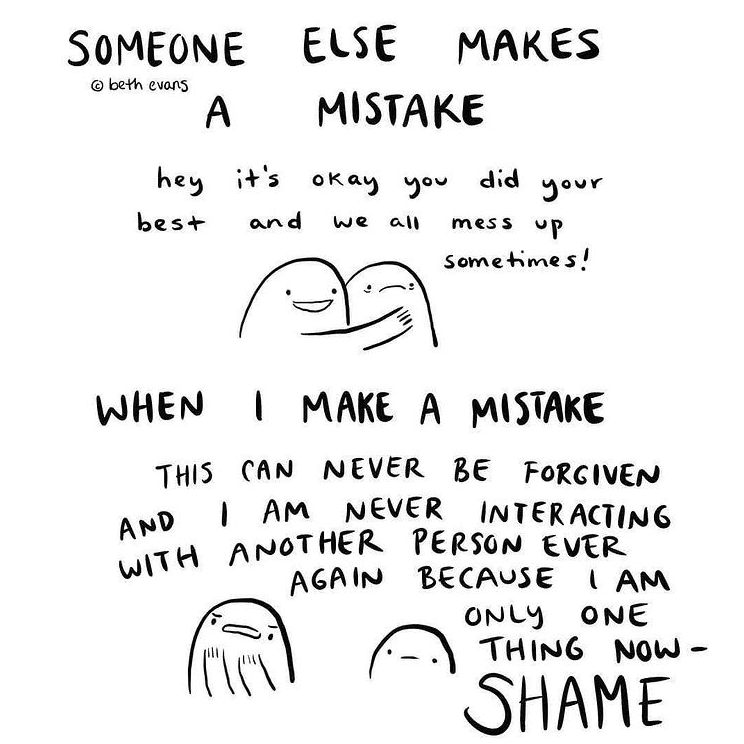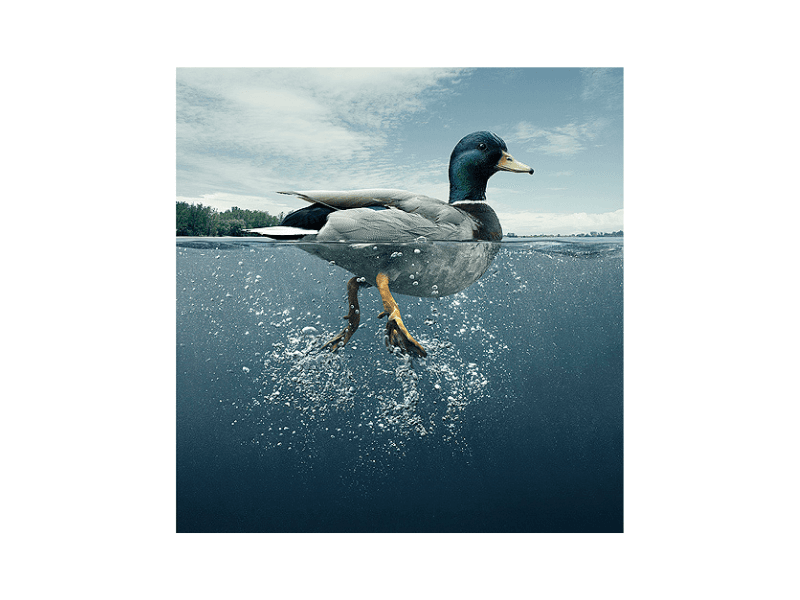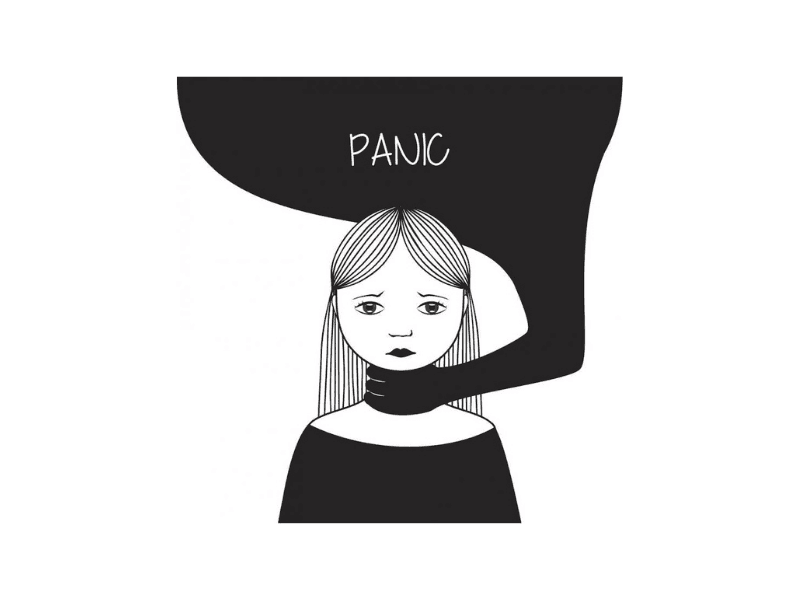In preparation for #MentalHealthAwarenessWeek and deep in the topic of ‘stigma in the shadows’ – our World Changers focus on tricky topics – I put a call out to my colleagues, asking them to share their experiences of something still considered a taboo in many workplaces: anxiety.
As a team working in a high-performing environment, with ever-shifting deadlines and demands, the expectations we place on ourselves, and each other, are high. While this produces work that we’re incredibly proud of, it can also lead to some of us grappling with anxiety.
And anxiety is crafty. When you’re struggling, it’s easy to assume that everyone around you is totally in control, confident and cracking on with their tasks. Behind the scenes it can be a very different story. The problem is, we don’t often confront it – and stigmas keep us silent about the worries we should be sharing. Simply talking about anxiety can go a long way to breaking down barriers and showing each other that it’s ok to have a wobble.
According to Mental Health First Aid England, one in five people take a day off due to stress. But a concerning 90 per cent of those people cite a different reason for their absence. With around one in six people reporting experiencing anxiety or depression in any given week, it’s clear that, despite how common it is, there’s still a long way to go until people feel truly comfortable to speak up.
I’ve suffered with major bouts of anxiety over the years, and it’s made me passionate about getting it out in the open. But you’re never quite sure if you’re standing out there alone. So, I was heartened that, moments after posting my request, my inbox was full of responses from peers willing to get involved and share their experiences and advice.
Taking them up on their offer, I asked my colleagues to share an image that best captures what anxiety looks like to them, and to tell me what they find best helps them manage anxiety. Here’s what they said:
Richard Bibby, procurement manager

“I chose this image because it’s the way that I tend to feel when I’m under pressure and anxious about not letting people down; not just at work necessarily, but in life in general. People depend on me and I find that overwhelming at times.
“I take regular medication to help with anxiety and depression so that keeps the feeling from being really overpowering. But taking even a few minutes away from everything, sitting somewhere else, making a drink or going out for a walk takes me out of the pressure cooker for a while.
“People tend to open up a bit more once they realise that they won’t be ridiculed, and I think talking, even if it’s non-specific, can make such a big difference. The more this kind of stuff is out in the open, hopefully, the more the stigma will be reduced.”
Jonny Gatenby, senior creative

“I love talking to people and brainstorming ideas. But when I’m in a formal setting or the number of people increases, I stop being able to be me. I start to question everything that comes out of my mouth to the point where I begin blabbering. It’s bloody stressful!
“I like to talk to people informally and when I’m not doing that, I feel like I’m putting on an act. It’s uncomfortable. In a big group, I can’t focus on one person and I struggle to get eye contact and signals that help me relax.
“What helps me personally is simply not trying to be something I’m not. I’d love to be able to speak to a group in a formal way, but that’s not me. Truly being myself in any situation will always bring out the best in me.”
Jeremy Petty, managing director

“So, for me, this image doesn’t represent anxiety, but it’s the picture I call to mind when I feel anxious.
“It’s the view out to sea, taken from the bottom of a house in Cornwall my family has been visiting since the 1940s. I guess it’s my ‘happy place’. Looking out to the waves breaking on the rocks below helps me contextualise things – nothing seems that important, compared to that vast mass of water ebbing and flowing. Picturing that scene and those sounds helps diffuse the sense of feeling overwhelmed.
“It helps that it’s also associated with the people I love, who give me strength and support. When I took my boys there for the first time, it was a big deal. This image – them staring out to sea, not me – makes me happy that I can pass this special place on to them. I hope it gives them the same comfort it’s always given me.
“I wish that people would talk more about how normal and natural it is to, sometimes, feel like it’s all too much. The pressure the world puts on us and the pressure we put on ourselves renders it virtually impossible to not feel it every now and then.
“I think it’s important for leaders to be honest about it: no-one’s a machine. We need to be able to be honest in the moment if anxiety shows itself to a friend or colleague. Honest enough to say, ‘sorry I was shitty/short/couldn’t take your call ... it wasn’t you; I’m just having a really hard time right now’.”
Elle Bradley-Cox, senior writer

“The word shame speaks to me in this picture. If you asked my boss, she’d tell you I’m a self-flagellator, which I’m sure is a nightmare for her to manage. I hate getting stuff wrong, am incredibly self-critical and my brain is my worst enemy at times. I’m trying to be better at letting go of some of the feelings that do nothing for me, such as shame and guilt. They’re useless emotions that fester under the surface, only visible to me and yet they utterly stagnate progress.
“Breathing helps. It sounds simple but getting enough air in your lungs makes all the difference during an anxiety attack. Crouching over our desks is an unnatural way to be and just lifting out of that position, standing up and opening your chest helps you get enough breath in to help steady yourself. Menthol is another trick of mine; it forces you to breathe.
“I wish more people would talk about their anxiety. Especially men. Matt Haig is one of the most powerful voices on anxiety, helping to dispel the myth that men have to be strong.
“Nearly all of us have experienced anxiety from time to time, and yet it’s still one of the more stigmatised aspects of mental health. Maybe that’s due to the physical pain that becomes apparent when people have anxiety attacks and those stiff-upper-lip expectations that lots of us in the UK grew up with. It makes people uncomfortable, doesn’t it, seeing someone in pain? It’s becoming clearer to me as I get older that shame is the root cause of most of the world’s problems. Well, it can absolutely do one.”
Lucy Stead, project manager

“This duck perfectly sums up my anxiety.
“Everything might appear calm and collected on the surface, but under the water my little feet are racing, and my mind is going 100 miles an hour. All that thinking and panic never really seems to get me anywhere, and the whole process is exhausting!
“Talking about how I‘m feeling and being honest when I‘m struggling helps the most. Having that acknowledgment is important.
“It’s important for people to talk more about the physical impacts of stress and anxiety. It’s not just your mind that’s impacted and left unchecked, it can be harmful in the long-term. All too often, we brush off the side effects of stress and say things like, ‘I’m not sleeping right at the moment, but it’ll get better’ – but we need to get better about recognising those warning signs and addressing them.”
Lydia Edwards, consultant

“This image captures the sense of panic I can feel – an overly-full, nonsensical head and a feeling of being crushed.
“In the moment, it helps just to breathe slowly and move into a difference space. I find that being around other people helps me overcome that sense of panic and anxiety.
“I’d love people to speak more about how common it is and how it’s something everyone lives with, in one way or another. We shouldn’t let it build into this ‘thing’ to be scared of or preachy about. Anxiety is as common as a cold, but often feels like the elephant in the room. Let’s have less of the stigma, and more of the support.”
This article was inspired by our recent conversations about taboo topics. Listen to Alastair Atkinson share his experiences of mental health and thoughts about how employers can best support their people on our World Changers podcast.




